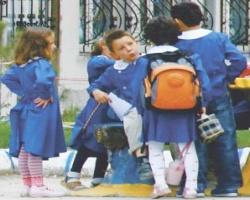Once a victim, always a victim? So it would seem, according to a new study published in the Archives of General Psychiatry.
(Story continues below.)
Discussion Starters
1.) The story indicates one in 10 students will suffer from name-calling, teasing and even violence or abuse inflicted by their peers while at school. What have the students with whom you work experienced? What immediate consequences have occurred as a result?
2.) How and where do students see such behavior originating? How does this impact how they handle themselves and their circumstances in the future?
3.) From
Michel Boivin, a psychologist at Universite Laval in Quebec, Canada, and co-author of the study, says, “peer victimization becomes increasingly stable over time, with the same children enduring such negative experiences throughout childhood and adolescence.” Nearly a 10th of the student population suffers chronic social aggression.
Researchers found several key factors indicative of a child’s future victimization, the first being physically aggressive behavior; the second being “overly punitive” parenting in response to the child’s unacceptable behavior; and the third being a low socio-economic status.
Data was collected on 1,970 children (half boys and half girls) born between October 1997 and July 1998 via periodic interviews with their mothers, teachers and the children themselves regarding how frequently they complained of being bullied at school. Three “trajectories” were identified with 71 percent of children falling into the first; about a quarter falling into the second; and 4 percent (mostly boys) into the third — these suffering being chronically, highly victimized.
Most children eventually learn to communicate peacefully in groups, but the children in the third trajectory are high-risk as they appear to be unable to develop such social skills, according to Boivin. Consequences of prolonged victimization are manifold but include depression, loneliness, low self-esteem, physical health problems, social withdrawal, alcohol and/or drug use, school absence and avoidance, decrease in school performance, self-harm and suicidal ideation.




